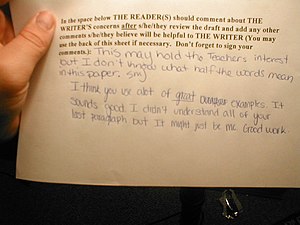The dreaded deadline is upon me, but that can be a good thing. Sometimes writers need to revisit previous ideas about writing. Here's a favorite post from March 2012:
Writing is a lot like embarking on a journey with an
incomplete roadmap. You think you know
where you’re going, but the map doesn’t show the unexpected detours, the places
where the road suddenly ends, and the new highway that’s under construction.
Also, you entrust your car (the story) to a driver (your
main character), who has a mind of his own, is often distracted by shiny
objects on the side of the road, and wants to stop occasionally to take care of
bodily functions (sleeping, eating, going to the restroom).
You, the writer, want to keep your story moving forward in a
predetermined direction, but the incomplete map and willful driver get in the
way, creating writing roadblocks that threaten to derail your story.
It’s enough to make a writer give up on the journey and
start over (e.g., rewrite the story from the beginning or start a new story) or
even stay home (e.g., give up on writing altogether).
But don’t be hasty.
Sometimes roadblocks take the story in a new and exciting direction.
Writing roadblocks come in many forms. Sometimes your character is faced with a
decision, and you have no idea how she will decide. Or another, unexpected character shows up,
and you don’t know what to do with him.
Or the plot twist you thought was going to be brilliant turns out to be
lame.
What do you do now?
Coming to a writing roadblock is not pleasant, but it can be
the best thing to ever happen to your story.
Here are eight tips for working with your roadblock instead of fighting
it:
1. Begin with your
character. Your character must want something. What is it?
How important is it that she gets what she wants? You do not have to determine up front whether
or not your character succeeds – the fact that she wants something gives your
story purpose and direction.
2. Determine what’s at stake. What will happen if your character does not
get what she wants? Will she lose her
last chance at happiness? Will the
murderer get away? Will the world come
to an end? Again, you do not have to
know up front if your character will win.
You only have to know what will happen if she doesn’t.
3. Be prepared to
accept the worst. Writers can hold themselves back if they fail to address
this question. And it is a hard question. After all, we like to think of our main
characters as winners, and much of popular fiction teaches us that the hero
always wins. But doubt and uncertainty
can paralyze us as writers if we don’t face the hard questions.
So what if your character loses her last chance at
happiness? What if the murderer gets
away? What if the world comes to an
end? What then? (And there is always a “What then?” even if
the world ends.)
4. Determine the steps your character will
take to reach her goal. Once again, you don’t know if she’s going to
succeed; you only know what she’s going to do next.
5. Determine the
obstacles in your character’s way. If
you’re like me, creating obstacles for your character is tough. It’s like tripping your own child while he’s
carrying a tray full of expensive china across the room. My advice: Don’t stress too hard in dreaming
up obstacles. Your character will trip on his own at some point, which leads me to . . .
6. When an unexpected roadblock occurs, see it
as an opportunity for growth – for
both your character and yourself. This
is where you truly test your mettle as a writer. This is where both you and your character
discover hidden strengths. Just as
adversity in the real world can bring out hidden talents, forgotten skills, and
surprising character traits in people, so too can roadblocks reveal aspects of
your story that keep it fresh and exciting.
7. Keep forging
ahead. Go around the roadblock. Fly
over it. Dig under it. Heck, it’s your story: drive straight through
the roadblock if you wish. Whatever you
do, keep writing.
8. Don’t start over. If you do, you deprive your character and
yourself of a chance to grow. Instead,
have the courage to keep going forward, wherever the story takes you, even if
the outcome differs from what you originally expected.
Writing is discovery, but not all discoveries are
pleasant. When a writing roadblock
threatens to derail your story, seize it as an opportunity to trust in yourself
and in your story. After all, a
roadblock may just make the entire journey worthwhile.
What do you think?
How do you deal with writing roadblocks?












